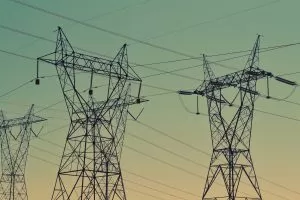 Many consumers wonder if they should switch to an alternative supplier to cut down on their electric or gas bills. But beware, these enticing offers are many times not as good as they seem.
Many consumers wonder if they should switch to an alternative supplier to cut down on their electric or gas bills. But beware, these enticing offers are many times not as good as they seem.
In fact, Illinois consumers have lost $1.6 billion to alternative electric suppliers since 2015. CUB Executive Director Sarah Moskowitz has recently appeared on WGN radio and in the Chicago Sun-Times to warn customers about rip-offs peddled by alternative suppliers. Read CUB’s simple tips:
- The utility is likely your best bet. Visit CUB’s gas and electric pages to see what the utilities are charging, so you can compare the utility supply price to any price that an alternative supplier offers.
- If you shop, be wary of:
- A low introductory rate that will skyrocket after a short period. (Ask how long a rate lasts, and what the new rate will be.)
- Add-on monthly fees that raise the cost of the plan. (Scan the fine print.)
- Force majeure. Companies charging a fixed rate, which would presumably protect a customer from a spike in prices, could claim “force majeure.” That’s a legal term to describe a company claiming it can no longer honor a contract because of unforeseeable circumstances beyond its control. Read the fine print.
- Remember, going with an alternative supplier will NOT protect you from utility rate hikes. Those hikes impact delivery rates, what we pay the utilities to deliver gas and electricity to our homes. Everyone pays those rates, even if they’re with an alternative supplier.
- Be wary about showing your bill to just anybody. If somebody comes to your door and says they want to look at your electricity or gas bills, don’t hand it over OR give out your account number, unless you are absolutely sure you want to sign up. A sales rep who sees your bill can get your account number and sign you up for a deal without your permission–a scam called “slamming.” Any decision you make about your utility bills is important, and you don’t have to make it on your doorstep. Don’t give out any sensitive info, even if the person at the door claims to be from the utility company. Instead, ask where you can get more information about the offer and end the conversation.
- If you want to sign up, watch your bill carefully. Be prepared to get out of the offer if you notice it stops saving you money– you should be able to get out with no penalty.
- With electricity supply, check if your community has negotiated a “municipal aggregation” deal. Municipal aggregation is when community leaders negotiate with an alternative supplier to secure a reasonable electricity price. Savings aren’t guaranteed, but your community may have secured a lower supply rate than your utility. Just make sure to find out when the offer expires.
- Read our fact sheets on energy choice for Nicor Gas customers, Nor
th Shore/Peoples Gas customers, ComEd customers and Ameren customers.
Remember, there are other ways to reduce your bills that are more reliable than switching to an alternative supplier. Check out these opportunities:
- Practice energy efficiency. The utilities offer no- and low-cost programs to help cut costs. (Pro tip: Consider a Home Energy Assessment, offered by ComEd and Ameren (Ameren’s program is for income-qualified customers).
- Consider joining ComEd Peak Time Savings/Ameren Peak Time Rewards. These programs (one for ComEd customers, and one for Ameren customers) give you a bill credit if you’re able to reduce your energy usage for a limited number of hours on certain days (typically hot summer afternoons) when electricity demand is highest. Demand response programs like these give you incentives to reduce energy usage when demand is at its peak and fossil-fuel power plants work their hardest. Since a significant part of our power bills goes to making sure power plants can meet high demand, lowering peak demand can cut our costs.
- Consider joining ComEd Hourly Pricing/Ameren Power Smart Pricing. These demand-response programs–Hourly Pricing and Power Smart Pricing–charge a wholesale market price that can change hourly, compared with the traditional rate that only changes about twice a year. They encourage customers to put off heavy energy usage (laundry, for example) until prices are lowest: late night and early morning. These programs reduce peak demand and cut the need for fossil-fuel power plant operation. While savings are not guaranteed, typical participants have saved an average of 10-15 percent on their electricity supply costs.
- Explore solar power: Consider installing solar panels using new state and federal incentives. Or, if that’s not an option, check the Community Solar deals in your service area. Community solar allows you to enjoy the benefits of solar power (lower bills) without having to install panels on your property. Currently, all community solar deals claim to save participants money compared with the utility’s supply price, but make sure to read the fine print and check out our shopping tips. Plus, remember that the waiting list for offers can be months, even up to a year.
- If you are struggling to afford your bills, see if you qualify for energy assistance. The application process for the Low Income Home Energy Assistance Program (LIHEAP) has reopened. To apply or learn more, visit www.helpillinoisfamilies.com or call the Help Illinois Families Assistance Line at 1-833-711-0374.

